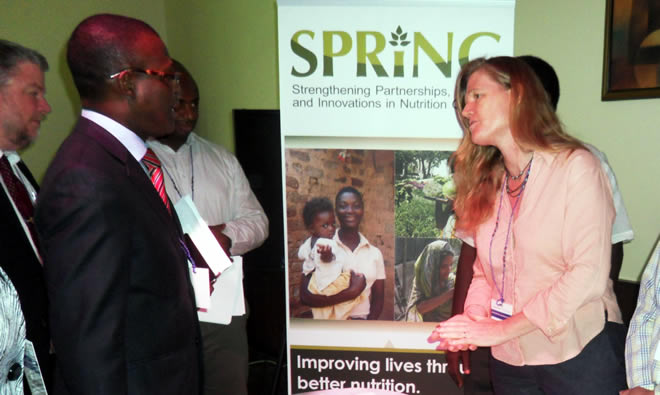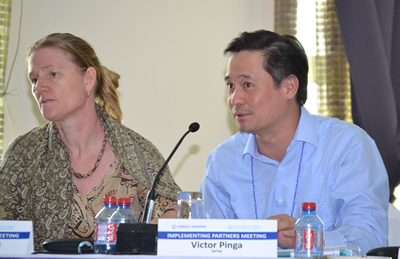
“Collaborating for Results” is the name of a recent agricultural meeting that brought together project and thought leaders to foster dialogue on innovative ways to effectively collaborate toward greater results and to facilitate the achievement of the USAID/Ghana Feed the Future goal of reducing stunting by 20 percent.
USAID/Ghana through the Africa Leadership Training & Capacity Building Program (AfricaLEAD) and Monitoring, Evaluation and Technical Support Services in Ghana (METSS) organized this annual meeting. USAID, Feed the Future implementing partners in Ghana, the World Bank, the Department of International Development (DFID), the International Fund for Agricultural Development (IFAD), the African Development Bank (AFDB), the Canada High Mission in Ghana, and other donor agencies all sent representatives to this annual meeting. The Ghana Government’s Ministry of Agriculture, Savannah Accelerated Development Authority, University of Cape Coast, University for Development Studies, and the private sector were also represented. The meeting was officiated by the Minister of Agriculture, Hon. Fiifi Kwettey, and Peter Trenchard, the Economic Growth Office Director of USAID/Ghana.
The two day meeting featured presentations on how development partners and the private sector can collaborate effectively in agricultural value chains. Panel discussions covered topics such as Northern Ghana strategy and coordination, scaling of technology, climate-smart agriculture, linking agriculture and nutrition, and challenges and opportunities for achieving the goals of poverty reduction as well as a shared knowledge management platform to promote coordinated data. SPRING’s Agriculture Advisor, Victor Pinga, participated on the panel to discuss the agriculture and nutrition linkages.

The SPRING/Ghana team displayed project materials and discussed SPRING’s global technical area of expertise linking agriculture and nutrition to the Minister of Agriculture and the rest of the participants.
SPRING/Ghana and Feed the Future are working to achieve the goals of inclusive agriculture sector growth and women and children’s improved nutrition status. Doing this requires a multisectoral strategy, and agriculture has an important role to play in providing affordable, available, nutritious, and stable food.